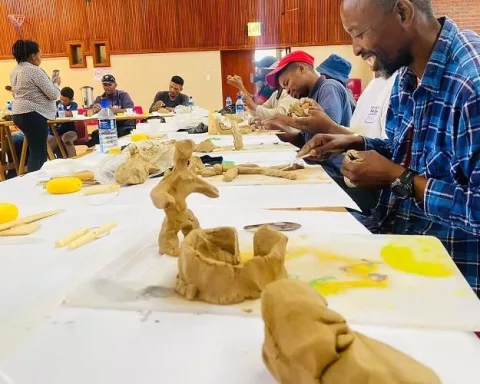The legacy of forced removals in South Africa, especially during apartheid, leaves deep wounds in the nation’s heart. Communities like Sophiatown were torn apart, leading to economic struggles for the displaced. As South Africa works towards healing, it aims for justice and equality for all its people. With a commitment to combating corruption and protecting the vulnerable, the country moves forward, determined to create a brighter, united future where everyone can thrive.
What is the legacy of forced removals in South Africa?
The legacy of forced removals in South Africa, particularly during apartheid, reflects systemic injustices that caused deep societal scars. These removals, such as the relocation of Sophiatown’s residents, highlight socio-economic marginalization and have fueled the nation’s ongoing pursuit of justice, reconciliation, and equality for all citizens.
The Deep Wounds of Apartheid
The history of South Africa carries the weight of forced removals that have left an indelible mark on the nation’s consciousness. Seventy years ago, the vibrant community of Sophiatown faced a profound upheaval as residents were forcibly relocated to Meadowlands in Soweto. This event serves as a stark reminder of the systemic injustices perpetrated under apartheid, deeply embedding scars in the collective memory of the nation. The relocation of Sophiatown’s residents was not merely a physical displacement but a representation of the broader socio-economic marginalization endured by black South Africans.
As South Africa endeavors to heal, the journey towards reconciliation and unity takes on renewed importance. The nation strives to piece together the diverse cultural and social threads that form its identity. As the country commemorates three decades since the founding of its constitutional court, this institution stands as a beacon of justice and equality. Situated at Constitution Hill, the court partially incorporates the remnants of the oppressive Number 4 prison, creating a powerful symbol of transformation and progress. This juxtaposition serves as a constant reminder of South Africa’s commitment to justice, even as it continues to address the lingering shadows of its past.
The specter of apartheid’s legacy remains, but South Africa is determined to forge a path towards a more equitable society. The process of reconciliation involves not only acknowledging historical injustices but actively working to address their enduring impacts. With a focus on justice and equality, the nation seeks to create a society where all citizens can thrive, free from the constraints of past injustices.
Combating Corruption: A National Priority
In today’s South Africa, the threat of corruption looms large, posing significant challenges to the country’s democratic aspirations. Recognizing the gravity of this issue, the government has launched an ambitious agenda to strengthen its institutions against corruption’s pervasive influence. Minister Mmamoloko Kubayi has outlined a vision for a robust and ethical developmental state, emphasizing the need to enhance the capabilities of entities tasked with combating corruption. This initiative includes a comprehensive review of the anti-corruption framework, aimed at eliminating redundant functions and optimizing resources to effectively tackle corruption.
The era of state capture starkly illustrated the vulnerability of key institutions, which were manipulated to facilitate rather than prevent corruption. In response, the government has prioritized restructuring these institutions, with a particular focus on establishing a world-class digital forensics laboratory. This initiative aims to expedite the investigation and prosecution of state capture cases, ensuring swift justice and serving as a deterrent against future abuses.
Efforts to strengthen the National Prosecuting Authority (NPA) have also been a focal point, with new guidelines developed to improve the appointment process for prosecutors. These guidelines aim to enhance transparency and efficiency, reducing the potential for subjective biases in recruitment. Additionally, the government has implemented lifestyle audits for employees within the Department of Justice and related bodies, ensuring those tasked with upholding the law maintain high ethical standards.
Progress in Tackling Gender-Based Violence
Another critical issue facing South Africa is the persistent scourge of gender-based violence and femicide (GBV&F). Despite legislative measures and initiatives, the prevalence of GBV&F remains alarmingly high. The courts have been empowered to impose harsher sentences for crimes involving femicide and domestic violence, resulting in increased conviction rates. The Thuthuzela Care Centres play a pivotal role in supporting victims, with a reported 78% conviction rate in sexual offences cases.
The NPA’s efforts in securing justice have led to 221 life sentences for sex crimes. Yet, the ongoing prevalence of GBV&F and the reluctance of some victims to pursue legal action highlight the need for a societal shift. The government recognizes that its efforts alone are insufficient; a collective response from society is essential to create a safe environment for women, children, and vulnerable communities.
Protecting children and people with disabilities remains a priority, with initiatives like the National Register for Sex Offenders issuing thousands of clearance certificates to prevent offenders from exploiting vulnerable individuals. However, the confidentiality of the register has been identified as a barrier, allowing repeat offenders continued access to potential victims. To address this, the government advocates for amendments to the Sexual Offences and Related Matters Act to make the register publicly accessible, part of a broader consultative process to ensure stakeholders can access crucial information.
A Unified Vision for Justice and Equality
South Africa’s journey towards a just society is fraught with challenges, yet the determination to overcome them remains unwavering. The government’s commitment to combating corruption, safeguarding vulnerable populations, and fostering national unity underscores its dedication to building a society where justice, equality, and integrity prevail. The path forward requires not only institutional reforms but a collective societal effort to address the nation’s historical and contemporary issues.
As the nation continues to evolve, the legacy of its past serves as both a reminder and a catalyst for change. By addressing the systemic injustices of apartheid and tackling contemporary challenges such as corruption and gender-based violence, South Africa strives to create an inclusive and equitable future. The journey may be arduous, but the resolve to build a society characterized by justice, equality, and unity is stronger than ever.
FAQ
What are forced removals, and how did they impact South Africa?
Forced removals refer to the systematic relocation of individuals or communities, often without their consent, typically due to government policies. In South Africa, particularly during the apartheid era, forced removals led to the displacement of entire communities, such as Sophiatown. This historical injustice has resulted in deep societal scars, economic struggles, and ongoing efforts for justice and reconciliation among affected communities.
How does the legacy of apartheid influence current societal issues in South Africa?
The legacy of apartheid continues to shape South Africa’s socio-economic landscape. The systemic injustices and forced removals have contributed to ongoing inequalities and economic challenges faced by marginalized communities. As the nation works towards healing and reconciliation, it is crucial to address these historical grievances to build a more equitable society for all citizens.
What steps is South Africa taking to combat corruption?
The South African government has recognized the threat of corruption and launched a comprehensive agenda to strengthen institutions against its influence. This includes a review of the anti-corruption framework, improving the capabilities of relevant agencies, and establishing a digital forensics laboratory to expedite investigations. Additionally, the government is enhancing the appointment process for prosecutors and conducting lifestyle audits to ensure ethical standards within the justice system.
How is gender-based violence being addressed in South Africa?
Gender-based violence (GBV) remains a significant issue in South Africa. The government has implemented legislative measures to impose harsher sentences for femicide and domestic violence, leading to increased conviction rates. Initiatives like Thuthuzela Care Centres support victims, and the National Prosecuting Authority (NPA) has secured numerous life sentences for sex crimes. However, a societal response is necessary to shift cultural attitudes and create a safer environment for vulnerable groups.
What initiatives are in place to protect children and people with disabilities?
Protecting children and individuals with disabilities is a priority for the South African government. Initiatives include the National Register for Sex Offenders, which aims to prevent offenders from exploiting vulnerable populations. However, addressing confidentiality issues is vital to ensure that potential victims are protected effectively. Proposed amendments to the Sexual Offences and Related Matters Act aim to make the register publicly accessible, allowing for greater transparency and safety.
How does South Africa envision a path towards reconciliation and unity?
South Africa’s vision for reconciliation and unity involves acknowledging historical injustices and actively working to address their impacts through justice and equality initiatives. The government emphasizes a collective societal effort to confront challenges like corruption and gender-based violence. By fostering national unity and addressing systemic injustices, South Africa aims to create a future where all citizens can thrive together in a just and equitable society.












